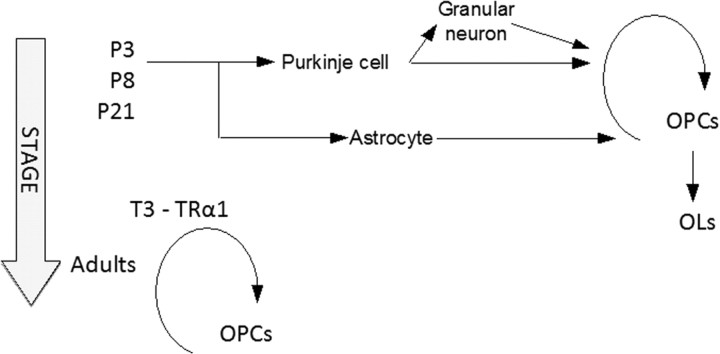Fig. 5.
Hypothetical model proposed for the influence of T3 signaling on OPC differentiation. During the first postnatal week, T3 exerts its cell-autonomous function only in Purkinje cells and astrocytes, modifying neurotrophic factor secretion and cell contacts, and indirectly favoring the commitment of proliferating OPC toward terminal differentiation. Although ubiquitous expression of TRα1L400R affects BDNF, Shh, and PDGF secretion, only secretion of NT3 by granular neurons is presented. By contrast, adult OPC are sensitive to the cell-autonomous signaling by T3/TRα1, which is required to prevent uncontrolled proliferation (second mode of action).

